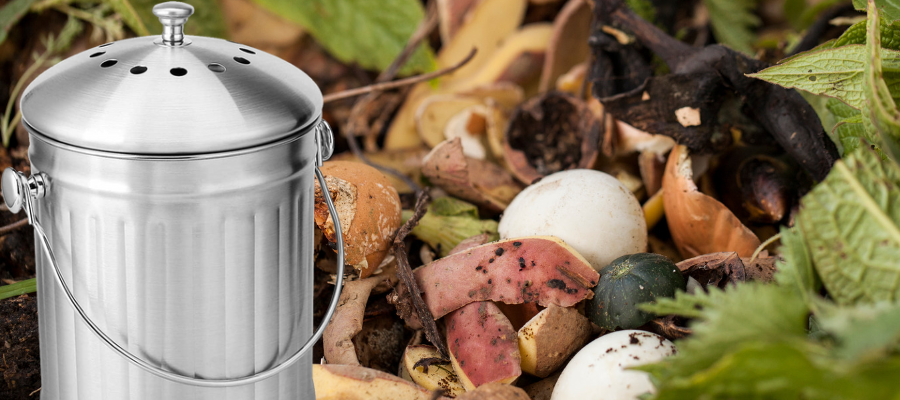Master Organic Composting for Small Gardens

Master Organic Composting for Small Gardens
Ever felt like you're tossing out a little bit of magic every time you throw away your fruit peels and coffee grounds? Well, you're not far off. Those scraps are the building blocks for rich, nutrient-dense compost that your garden will absolutely love. Let's dive into the world of organic composting techniques for small gardens and turn your waste into a gardener's goldmine.
Why Bother with Organic Composting?
Before we roll up our sleeves, let's chat about why you should give a hoot about composting. For starters, it's nature's recycling program. Instead of sending your garden waste to the landfill, you're turning it into a powerful fertilizer. Plus, it improves soil structure, helps retain moisture, and feeds your plants the good stuff they crave.
The Nitty-Gritty of Organic Composting
What Can You Compost?
Think of your compost bin as a vegetarian with a serious caffeine addiction. It loves fruit and veggie scraps, coffee grounds, eggshells, and yard trimmings. But it's not a fan of meat, dairy, or diseased plants. For a full list, check out the EPA's guide on composting at home.
The Magic Ratio
Composting is all about balance. You need a mix of carbon-rich 'browns' (like dead leaves and straw) and nitrogen-rich 'greens' (like grass clippings and food scraps). Aim for a ratio of about 3:1 browns to greens. Too much of one or the other can lead to a smelly, slow-decomposing mess.
Composting in Small Spaces
Just because you're short on square footage doesn't mean you can't create some amazing compost. Here are a few techniques tailored for small gardens.
The Trusty Compost Bin
A compost bin is a great way to keep your compost contained and critter-free. There are plenty of options out there, from fancy tumblers to DIY wooden bins. Just make sure it's well-aerated and easy to access.
How to Build a DIY Compost Bin
Feeling crafty? Build your own bin using wooden pallets or plastic storage containers. Just drill some holes for aeration, and you're good to go.
Vermicomposting: Worms to the Rescue
If space is really tight, consider vermicomposting. Worms can turn your kitchen scraps into rich compost in no time. Just keep them in a well-ventilated bin, feed them regularly, and let them work their magic.
Trench Composting: Bury and Forget
If you're not squeamish about digging in the dirt, try trench composting. Bury your organic matter directly in the garden, and let nature do its thing. Just be sure to bury it deep enough to avoid attracting pests.
Building and Maintaining Your Compost Pile
Location, Location, Location
Pick a spot that's convenient but not an eyesore. Partial shade is ideal, as too much sun can dry out your compost.
Layering: The Compost Lasagna
Start with a layer of browns, then add greens, and top it off with a thin layer of soil or finished compost. Repeat until your bin is full.
Turn, Turn, Turn
Aeration is key to healthy compost. Turn your pile every week or two to keep it well-oxygenated and speed up decomposition.
Troubleshooting Your Compost Pile
It's Too Smelly
A healthy compost pile shouldn't stink. If it does, you probably have too many greens. Add more browns and turn the pile to fix the issue.
It's Too Dry
If your pile isn't breaking down, it might be too dry. Add some water and turn the pile to distribute the moisture.
It's Too Wet
A soggy pile can lead to rotting rather than composting. Add more browns and turn the pile to soak up excess moisture.
Using Your Finished Compost
Once your compost is dark, crumbly, and sweet-smelling, it's ready to use. Mix it into your garden soil, use it as a top dressing, or brew some compost tea for a liquid fertilizer.
Conclusion
Mastering organic composting techniques for small gardens is like learning a superpower. You're turning waste into a garden wonder drug, all while reducing your environmental impact. So grab your gloves, embrace the scraps, and watch your garden grow like never before.
FAQs
Q: Can I compost if I live in an apartment? A: Absolutely! Vermicomposting is a great option for small spaces.
Q: How long does it take to make compost? A: It can take anywhere from a few months to a year, depending on factors like temperature, moisture, and aeration.
Q: Can I compost weeds? A: It's best to avoid composting weeds, as they can introduce diseases or re-root in your garden.
Q: What's the deal with compost tea? A: Compost tea is a liquid fertilizer made by steeping compost in water. It's a great way to give your plants a quick nutrient boost.
Q: Can I compost in the winter? A: Yes, but the process will slow down significantly in cold temperatures. Consider insulating your bin to keep the heat in.
0 Response to "Master Organic Composting for Small Gardens"
Post a Comment